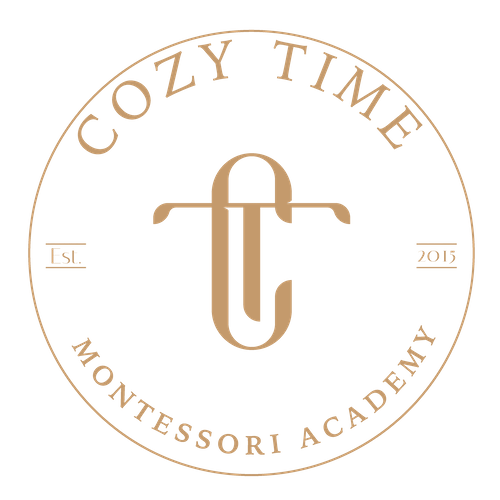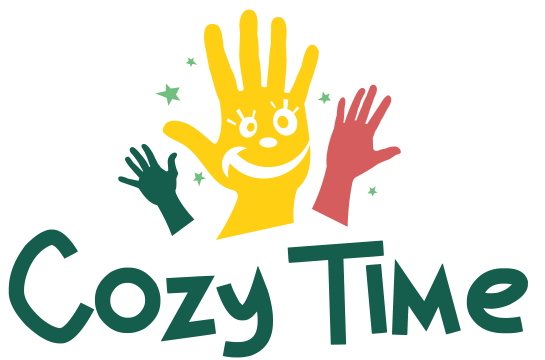Montessori daycare is a popular early childhood education option that emphasizes independence, hands-on learning, and mixed-age classrooms. While many parents in Vaughan (and around the world) appreciate the Montessori approach, it’s not without its drawbacks. Below we outline key disadvantages of Montessori daycare that families should consider before enrolling their child.
High Cost and Limited Accessibility
One of the most immediate disadvantages of Montessori programs is the higher cost. Montessori daycare centers are often private and require specialized materials and teacher training, which drives up tuition fees. In Canada and elsewhere, this means Montessori daycare can be significantly more expensive than standard daycare. Because most Montessori schools charge tuition and regulate admissions, they are less accessible to families on a budget. In fact, only a small fraction of Montessori programs are publicly funded, making it difficult for many low-income families to afford this option. The result is that Montessori education tends to be concentrated in more affluent communities, limiting diversity and access for everyone.
(For parents in Vaughan, this cost factor is important – you’ll want to ensure the benefits justify the financial commitment.)
Less Structured Curriculum Could Leave Gaps
Montessori’s “follow the child” philosophy means the curriculum is loosely structured, especially compared to traditional daycare or preschool programs. Children choose activities based on interest and work at their own pace rather than following a set lesson plan for the whole class. While this flexibility can foster independence, it may also lead to learning gaps. Critics note that a very loose curriculum can result in some subjects or skills getting less attention. For example, one Montessori-educated student recalled feeling under-prepared in math and science upon transitioning to a traditional school, even though they excelled in language and arts.
Additionally, some young children simply need more routine and guidance than a Montessori environment provides. If a child thrives on clear structure or requires extra help to stay on track, they might struggle in a setting where teachers act more as observers/facilitators than direct instructors. In short, Montessori’s lack of rigid structure may not suit every child’s learning style.
Emphasis on Independence Over Collaboration
Montessori daycare places a strong emphasis on independent, self-directed learning, which can be a double-edged sword. On one hand, children learn to take initiative and work autonomously. On the other hand, the focus on individual work means collaborative skills may not be strongly developed. There is typically less teacher-led group work or whole-class projects in Montessori. Some education experts point out that while an entrepreneurial, independent mindset is valuable, it can make it harder for students to later adjust to team-oriented environments. In the working world (and even in higher grades of school), success often requires collaboration, following instructions from others, and working within a group or under authority. Montessori graduates might need to catch up on these teamwork skills, since collaboration is not a major focus in the Montessori curriculum.
Parents may notice that Montessori classrooms encourage children to solve problems on their own terms. This is wonderful for creativity and confidence, but “independence isn’t everything,” as one former Montessori student noted. Children also benefit from learning how to compromise, share ideas, and be part of a structured team – areas where Montessori’s independent approach may fall short.
Limited Group Activities and Social Interaction
Another common criticism is that Montessori daycares offer fewer group activities and social interactions compared to traditional early childhood programs. In a typical Montessori class, children mostly engage in individual tasks or work in small, self-chosen groups rather than participating in teacher-directed group play or circle time. This can mean fewer opportunities for practicing large-group social skills like cooperative play, taking turns in big groups, or group projects. Free imaginative play with peers may also be less emphasized. In fact, pure Montessori classrooms traditionally avoid pretend play or fantasy activities – they use real-life materials and tasks instead. Critics have argued that this lack of pretend play and make-believe in Montessori can stifle imagination and creative social play in the early years.
It’s important to note that Montessori students do interact socially, just in a different way. They often learn from older or younger classmates in mixed-age groups and collaborate informally. However, if a child craves constant playmates or thrives in high-energy group settings, a Montessori daycare’s calm, individualized atmosphere might feel limiting. Some parents worry that their child might miss out on typical “kids being kids” moments since Montessori environments can feel more structured and subdued, even at playtime (for example, there may be rules about using indoor voices, keeping workspace tidy, etc.). For very outgoing children, or those who need practice with peer socialization, this could be seen as a disadvantage.
Not Ideal for Every Child (or Parent)
The Montessori method, while effective for many, does not suit every child’s needs. Its success largely depends on a child’s personality and learning style. For instance, children who are naturally self-motivated and curious often thrive in Montessori. But a child who is very shy, has learning difficulties, or needs extra guidance might struggle. Because Montessori assumes children are innately driven to learn, kids who require more encouragement or structure can fall behind in this environment. Similarly, a child with certain special needs might not get the individualized support they require if the Montessori teacher is focusing on facilitating rather than intervening or giving step-by-step instruction. While Maria Montessori designed her approach with inclusivity in mind, in practice the level of support can vary by school and teacher.
Parental fit matters too. Montessori philosophy asks parents to trust in the child’s ability to learn independently and to accept a less conventional approach (for example, no graded assessments or standard report cards in the early years). Not all parents are comfortable with this. If you, as a parent, prefer a more hands-on, directed educational role or want to see measurable academic progress, you might find Montessori’s abstract approach frustrating. It’s important that both child and parent are on board with the Montessori style; otherwise, this mismatch can become a disadvantage in itself.
Open-Ended Classroom Structure Can Be Intimidating
Montessori classrooms look very different from a traditional daycare room. There are no orderly rows of desks or strict schedules for switching activities. Instead, children move about freely and choose their work, and the physical space is arranged into learning stations rather than one big play area or teacher-facing setup. While many kids love this freedom, it can be intimidating or overwhelming for some children. Young children often find comfort in routine and clear physical boundaries. The open layout and constant choice in Montessori might make certain kids feel ungrounded or unsure of what to do next. For example, a child who is easily distracted might have trouble focusing when so many materials are available in the room. Another child might miss having a fixed daily routine (“music time at 10 o’clock,” “snack exactly at 11,” etc.) since Montessori schedules are more fluid.
Even aspects like the absence of a personal desk or cubby (because children use communal tables or floor mats) could bother a child who craves a sense of personal space or ownership. The less structured environment, though enriching for many, isn’t universally comfortable – some kids simply feel safer and more confident in a predictable setting with clearly defined rules and routines. This is worth considering if your child tends to be anxious with too many choices or changes in their day.
Variability in Quality and Philosophy
Finally, a subtle disadvantage of Montessori education is the variability in how it’s implemented from one daycare to another. The term “Montessori” isn’t trademarked, so any school can label itself Montessori without adhering strictly to the methods. This means the quality of Montessori daycares can vary widely. Some centers follow the authentic Montessori philosophy with well-trained certified teachers and carefully prepared environments; others might only use a few Montessori-inspired materials but still operate more like a traditional daycare. For parents, this inconsistency can be confusing. You might encounter a program calling itself Montessori that in practice doesn’t deliver the full benefits (thus you could end up with the “downsides” without the upsides!).
Moreover, even among genuine Montessori schools, teachers’ skill levels and interpretations of the method differ. A less experienced teacher might struggle to balance freedom and guidance, potentially leading to classroom disorder or insufficient support. When evaluating Montessori daycares in Vaughan or elsewhere, parents should research each school’s credentials, teacher training, and reputation. Knowing that the Montessori label alone doesn’t guarantee a high-quality program is important – you may need to dig deeper to ensure the approach is executed well.
Conclusion: Making the Right Choice for Your Child
Montessori daycare clearly has unique advantages, but understanding the potential disadvantages helps you make an informed decision. High costs, a loose curriculum, emphasis on independence, limited group play, and the need for a good fit with your child’s learning style are all factors to weigh. Every child is different – some will flourish in a Montessori setting despite (or even because of) these drawbacks, while others might be happier in a more traditional or play-based daycare.
When considering Montessori for your little one, think about your child’s temperament and needs. Visit local Vaughan Montessori centers, ask about how they address these common concerns, and observe a class if possible. A good Montessori daycare will often acknowledge these challenges and explain how they mitigate them (for example, by fostering social opportunities, ensuring academic basics are covered, or maintaining a balanced routine within the Montessori framework). By doing your homework and keeping the above points in mind, you can choose an early education environment where your child will thrive.
Ultimately, the “best” daycare is one that aligns with your child’s needs and your family’s values. Montessori is one great option, but it isn’t the only one. Knowing the disadvantages of Montessori daycare empowers you to make a confident choice – whether that means embracing Montessori with open eyes or exploring alternative childcare philosophies.





